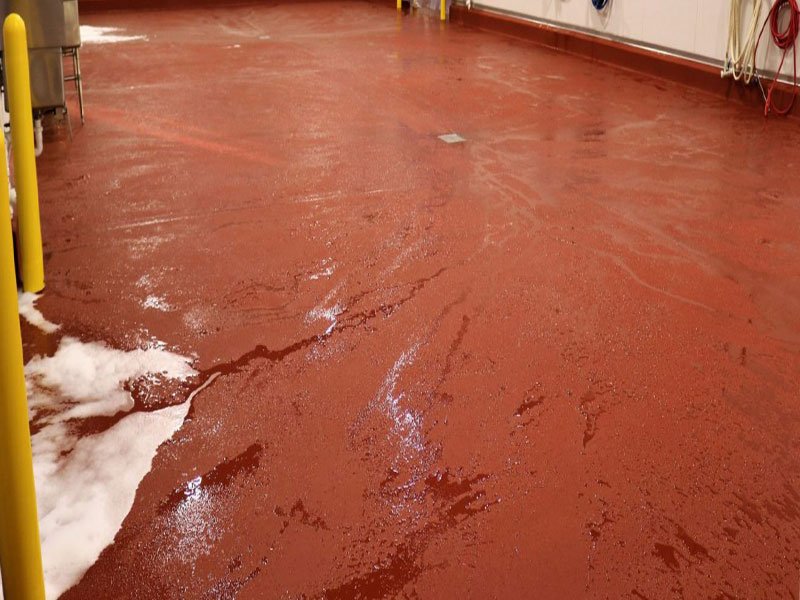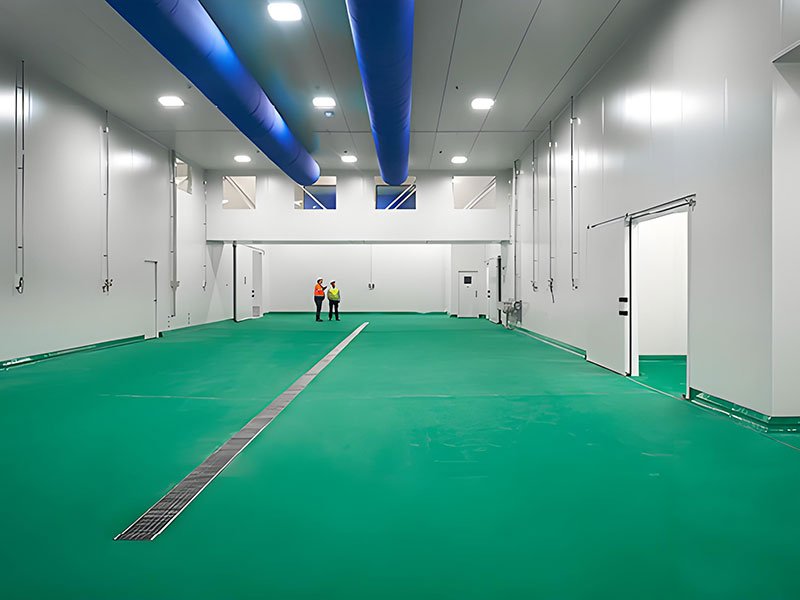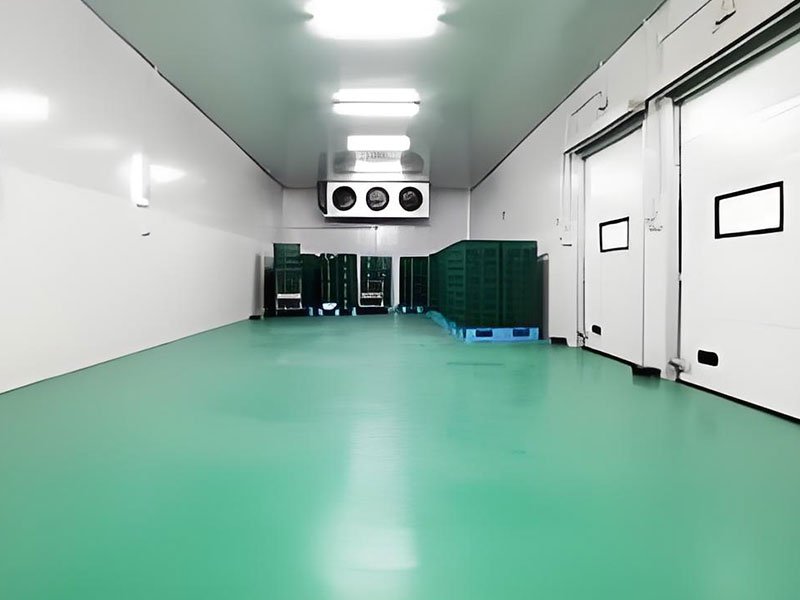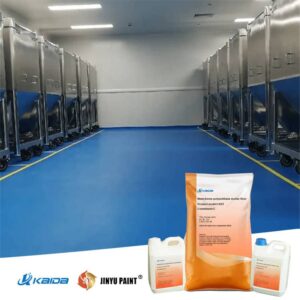Flooring For Cold Storage & Refrigerated Warehouses

Cold Storage Flooring Requirements
Numerous cases have demonstrated that cold storage flooring can be severely damaged due to frozen subsoil. In minor cases, the floor may bulge; in severe cases, walls and columns can be lifted, and in extreme scenarios, the entire structural system may fail—rendering the cold storage unusable and causing significant financial losses.
As a leading industrial flooring and solutions provider with extensive expertise, JINYU PAINT® offers three key strategies to transform your cold storage flooring concerns into reliable, long-term solutions.
1. Low-Temperature Resistance
Cold storage temperatures are far below ambient levels, requiring freezer-rated flooring that can withstand extreme cold. Traditional concrete flooring performs poorly in low temperatures and is prone to cracking. Prolonged exposure to freezing conditions only worsens these crack propagation issues, leading to structural degradation.
2. Impact Resistance
To maximize efficiency, forklifts are commonly used for transporting frozen goods. However, their heavy impact can damage weak flooring. Without high-impact-resistant flooring, both large and small cold storage facilities may experience thermal layer deformation, cracking, or delamination within a year.
3. Wear Resistance
Due to frequent cargo movement and equipment operation, cold storage flooring must have superior abrasion resistance to maintain a smooth, level surface. This ensures safe and efficient operations while preventing hazards caused by uneven flooring.
Recommended Cold Storage Flooring Solution:
Water baseed Polyurethane Mortar Self-Leveling System
As one of the most advanced flooring materials available today, waterborne polyurethane mortar self-leveling systems are ideally suited for extreme environments like cold storage facilities. This premium cold storage flooring solution offers exceptional performance where traditional materials fail.
The material’s unique elasticity and recovery properties ensure it maintains excellent adhesion to concrete substrates even under severe temperature fluctuations, preventing the cracking and delamination commonly seen with conventional flooring. With an operational temperature -40°C to 150°C, this specialized flooring maintains its structural integrity and original mechanical properties even in deep-freeze conditions, making it perfect for ultra-low temperature storage applications.



Cold Room Flooring That Stands Up to Extreme Conditions
- Unmatched durability in extreme cold
- Slip-resistant safety even when wet
- Easy cleaning for strict hygiene compliance
- Long-term cost savings versus frequent repairs
Related Products
-

PU3600 Polyurethane Ultra Abrasion Resistant Finish
Read more -

Anti-slip Self-leveling Anticorrosive Load-bearing Polyurethane Concrete Floor Paint
Read more -

Self-leveling Heavy-duty Anticorrosive Polyurethane Concrete Floor Coating
Read more -

WPU100 High Gloss Clear Water-based Polyurethane Finishs
Read more -

WPU100 Water-based Polyurethane Floor Finish
Read more
REQUEST A CALLBACK
For bespoke industry flooring solutions talk to KAIDA® JINYU PAINT® today.
We offer free no obligation advice and can provide a price range on the first contact.
- +86-158-229-255-23(whatsapp)
- kaida@jinyupaint.com
Contact Us
Contact: Ms. Sabella Wei
Phone: 86-022-83859963
Whatsapp: 15822925523





